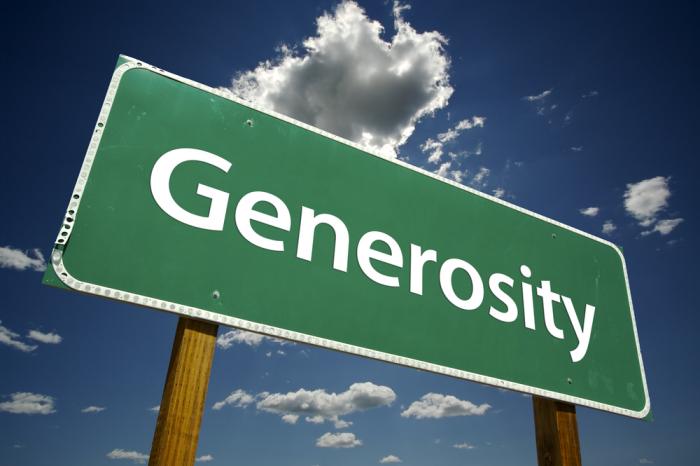- Home
- Play & Learn Home
- Online Enrichment
- Experience Modern Israel
- Israel It's Complicated
- Jewish and Me
- Jewish Holidays Jewish Values
- Jewish Values in Genesis and Jewish Values in Exodus
- Min Ha’aretz
- Our Place in the Universe
- Simply Seder
- The Prophets: Speaking Out for Justice
- Making T'filah Meaningful
- Make, Create, Celebrate
- Yom Haatzmaut Resources
- Hebrew Apps
- About The OLC
- What is the OLC?
- Introduction
- Get Started
- Resources
- OLC Content
- Parent Materials
- See My OLC Classes
- Store
Danny Siegel: Mitzvah Manager
Danny Siegel can barely finish a sentence without mentioning the names of the remarkable people he has met: He describes Avshalom Beni, a therapist who uses pets in his work with schizophrenic Holocaust survivors. He praises Hadassah Levi, who adopted 40 Down syndrome infants. He talks about Myriam Mendilow, who created a program to help the poor, elderly residents of Jerusalem. And the list goes on. All of these extraordinary people have improved the lives of countless Israelis.
Danny, a noted author, lecturer, and founder of the Ziv Tzedakah Fund, has raised over $12 million to help Mitzvah Heroes, as he calls them, with their important work. But now, after 17 years, Ziv is about to close its doors. With only one fulltime and one part-time employee, Ziv can no longer operate as efficiently and speedily as it once did; moreover, many of the Mitzvah Heroes are now supported through direct contributions instead of through Ziv. For Danny, it's a positive sign that people have learned to give tzedakah and support good people without Ziv's help.
Danny, who is looking forward to writing poetry, was getting ready to leave for Israel with a United Synagogue Youth summer tour when we caught up with him. We were thrilled to chat with Danny about how to develop a passion for compassion.
BABA: Hi, Danny. How did the Ziv Tzedakah Fund get started?
DANNY: I was going to Israel, and people gave me money to give tzedakah. I collected $955, gave the money to people in Israel who were making a difference in the world, and then I wrote a report for those people who gave me the money. I thought that was the end of it, but the next year, people gave me close to $1,600, and then $2,900, and then $6,000. After I received $12,000, I founded the Ziv Tzedakah Fund in 1981, but the model remained the same: Give Danny Siegel tzedakah money, let him find good people doing great tzedakah, and he'll give them money to make their work easier.
BABA:What do you like most about doing hesed work?
DANNY: You're assuming that I like it.
BABA: Okay. Do you like doing hesed work?
DANNY: Not exactly. I like working with those who do great tikkun olam work, but I couldn't take being a social worker or psychologist who deals with these difficult types of situations all the time. I spend a lot of time with Mitzvah Heroes. I don't want to be them, but I do get a high being with them, because they pull out of me whatever makes me worried that I won't respond well to the situation at hand. I believe that we all need rebbes in hesed, people who can teach us how to do this mitzvah in the best way possible. The Mitzvah Heroes are my rebbes in hesed.
BABA:What if it's too difficult to step out of one's own personal boundaries to do hesed?
DANNY: For me, the word mitzvah means that you have to do it, even if you don't feel like it. It's not about volunteerism. It's about doing a mitzvah.
BABA: Do you believe hesed changes the world?
DANNY: Absolutely! I think it's bad Judaism to say that the world is always going to be the same and that it doesn't get any better. I can tell you about Asher Elias, an Ethiopian who created a course to teach Ethiopians computer programming so they can work in high-tech jobs. Or I can tell you about the Savta Sandwich program at Beit Frankforter in Jerusalem, where grandmothers meet at 6:30 a.m. to make sandwiches for kids who can't afford to bring them to school. These people prove that we all have the power to change the world.
BABA: How can kids get involved with hesed?
DANNY: They have to ask themselves: What am I good at? What do I like to do? And what's bothering me about the world today? If you're good at shopping, you can go buy bargain goods to deliver locally where they are needed or ship them to Darfur. If you like playing mah-jongg, you can go to a nursing home and play with people who don't like bingo. If you enjoy building with Legos, go to a shelter for homeless people and bring your Lego bricks to play with the kids, and then leave your Legos behind. There's always something kids can do to help.
BABA: Thanks, Danny. You're our kind of Mitzvah Hero!
Jewishful Thinking
Darfur or Sderot? The local soup kitchen or the local Jewish Federation? The American Heart Association or Magen David Adom? With so many people in need of assistance, it’s often difficult to choose where to give. But the Talmud (Baba Metzia 71a) offers some guidance: “My people and other people, My people come first…. The poor of your city and the poor of another city, the poor of your city come first.”
Our tradition explains that hesed begins at home and builds outward toward others in concentric circles; for example, we begin by first helping our immediate and extended family, then Jews in our community, next the worldwide Jewish community, and finally, the world.
0
Organizations carrying on the work of the Ziv Tzedakah Fund: Mitzvah Heroes Fund The Good People Fund Activities for Students Mitzvah Machine


